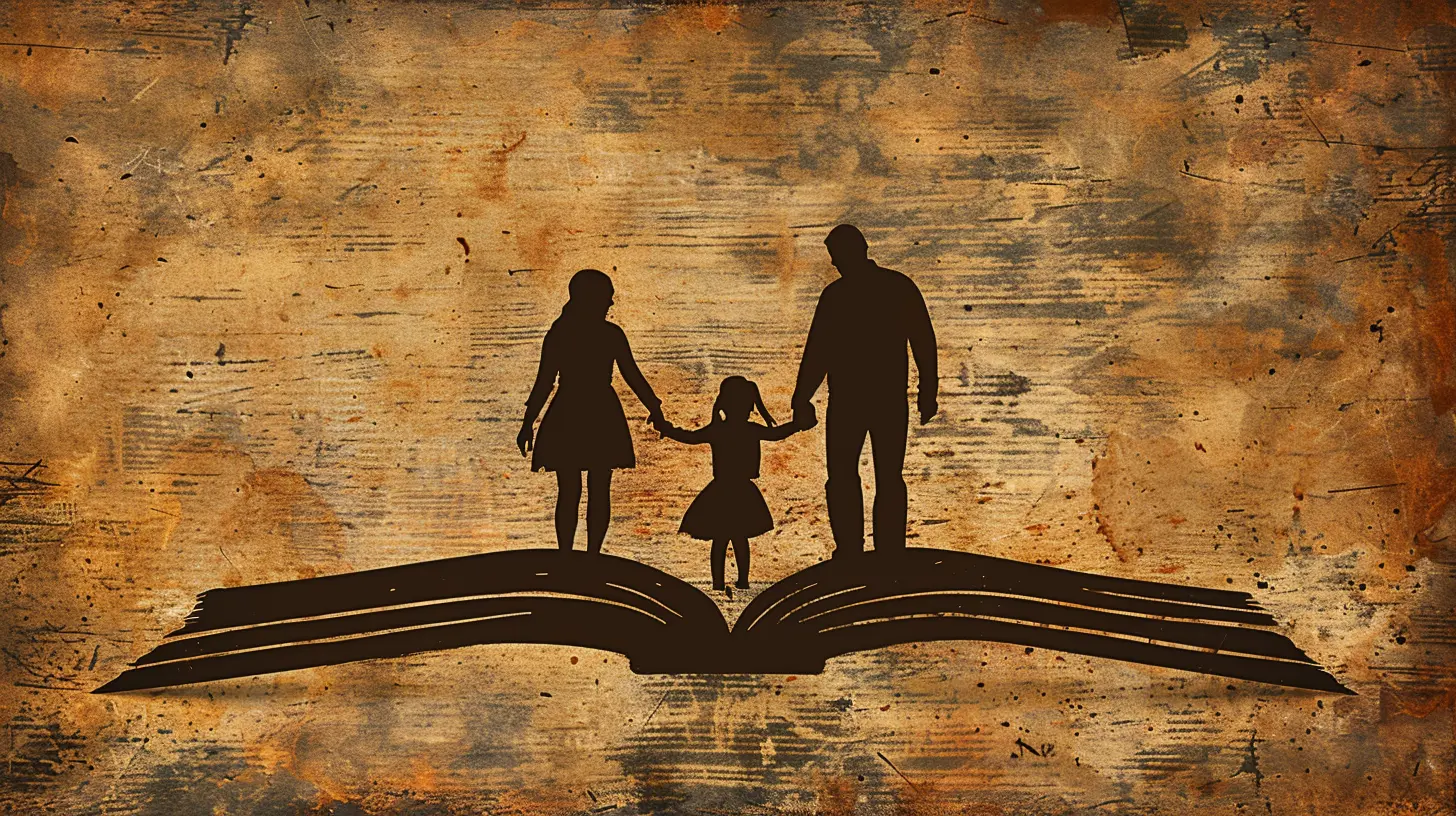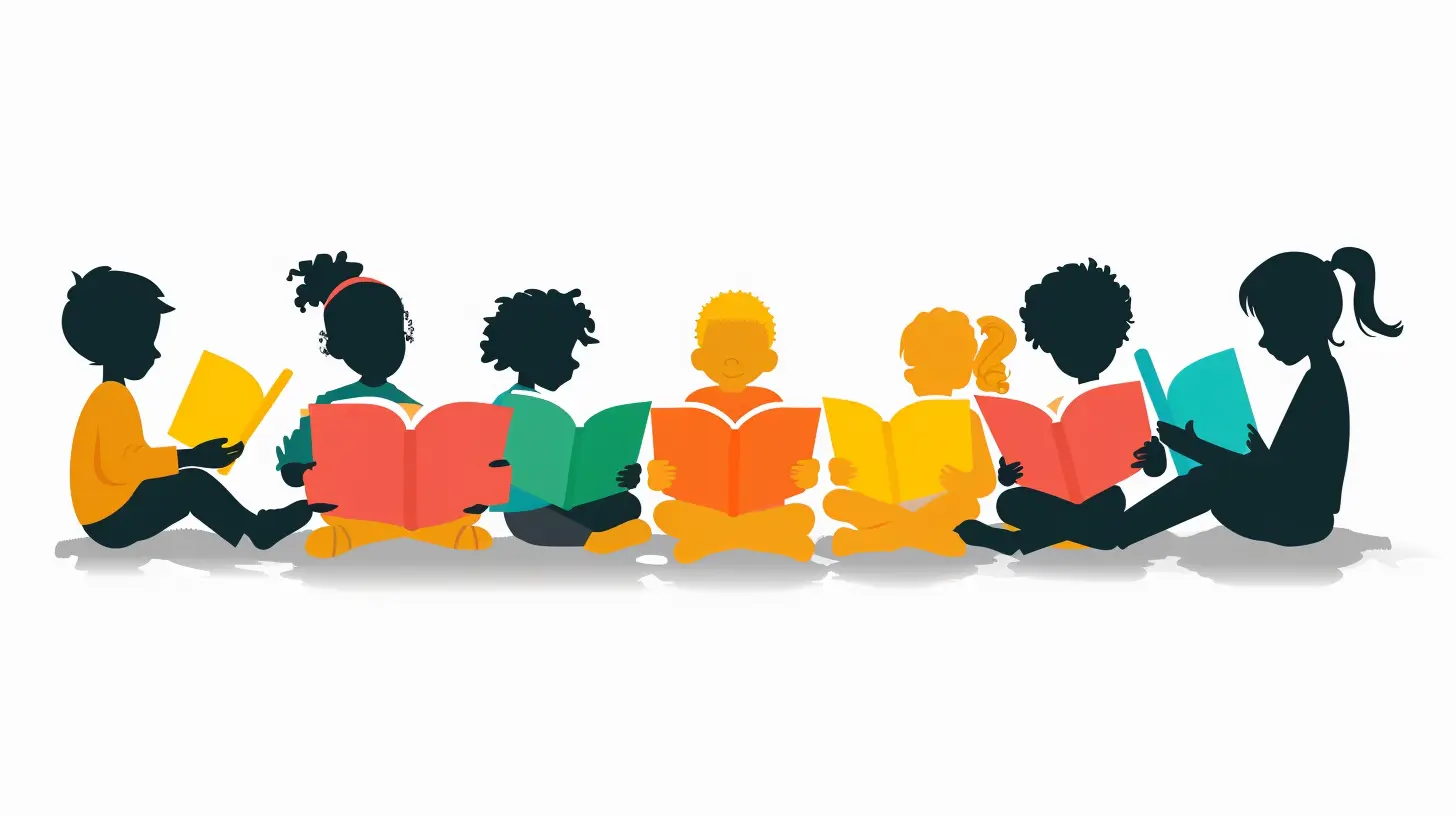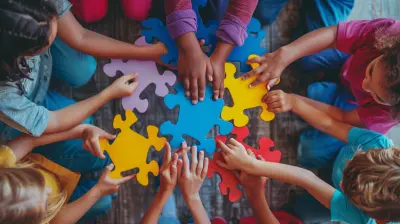The Role of Parents in Supporting Literacy Development
5 September 2025
Let’s be honest—watching your child read their first word is one of the most magical parenting moments. You can’t help but beam with pride. But here’s the kicker… that moment didn't happen by chance. It’s the result of many bedtime stories, ABC sing-alongs, pointing at signs, and asking, "What letter does that begin with?" Yes, all your small efforts add up. That's what we’re diving into today—the vital, irreplaceable role you play as a parent in your child’s literacy development.
Whether your kid is still babbling or already reading chapter books, your involvement shapes how confidently and effectively they learn to read and write. And the good news? You don’t need a degree in education to make a major impact. Ready to dive in? Let’s go!
What Is Literacy Development, Anyway?
Before we jump headfirst into strategies, let’s get on the same page. Literacy isn’t just reading books; it’s reading, writing, listening, speaking, and understanding language. Basically, it's everything from recognizing letters to writing an essay or telling a story.Literacy development begins long before a child enters school and continues well into their teen years. The home becomes the very first classroom, and guess who the first teachers are? Yep, you guessed it—you and anyone else at home.
Why Parental Involvement Matters So Much
Think of literacy like a garden. Teachers may be the ones tending it during the school day, but parents? You're the soil, sunlight, and water after hours. The research backs this up—kids whose parents are actively involved in their literacy journey tend to:- Start school with better vocabulary and language skills
- Develop stronger reading comprehension
- Become more confident readers
- Perform better academically overall
If you’re wondering how your daily involvement makes such a big difference, let’s break it down.
Creating a Print-Rich Environment at Home
You don’t need to install shelves upon shelves of books (though that’s cool too). Creating a print-rich environment can be as simple as:- Labeling items around the house (“door,” “mirror,” “fridge”)
- Keeping age-appropriate books within your child’s reach
- Using signs, charts, calendars, and written routines
- Encouraging scribbling, drawing, and early writing
When kids are surrounded by printed words, they naturally start connecting them to meaning.
Reading Aloud: The Secret Superpower
If you're only going to do one thing to support your child’s literacy—read aloud. No joke, it’s the golden ticket. Why?- It builds vocabulary (they hear words they wouldn’t get in casual conversation)
- It introduces story structure (beginning, middle, end)
- It creates positive associations with reading
- It strengthens listening and comprehension skills
And guess what? It doesn’t matter if it’s a comic book, bedtime story, or even a recipe—just reading aloud matters. Don’t worry if they ask you to read the same book 57 times. That repetition builds recognition and confidence.
Talking and Listening: Everyday Conversations Count
Here’s a quick reality check: kids learn language by hearing it. So, don’t stop talking! Have conversations all day, every day. Ask open-ended questions like:- “Why do you think the cat is hiding?”
- “What would happen if there was no sun?”
- “Can you tell me what happened at school today?”
And just as important as talking is listening. Really listening. When you make room for their answers, you’re teaching them that words matter—and that expressing yourself is powerful.
Encouraging Writing from an Early Age
No, your preschooler doesn’t need to write essays. But give them opportunities to scribble, draw, and start forming letters. Leave paper, crayons, and markers around. Let them keep a “writing notebook,” even if it’s filled with doodles. You’re setting the stage for writing fluency later on.For older kids, ask them to:
- Write grocery lists with you
- Keep a journal or gratitude diary
- Send postcards or letters to family
- Make up their own stories
Writing doesn’t always have to be school-related. Make it fun and meaningful.
Be a Literacy Role Model
Kids are like little sponges—they see everything. If they see you reading or writing regularly, they pick up on its importance. So:- Let them see you reading books, magazines, or even instructions
- Talk about what you're reading or writing
- Share your favorite childhood books
When your child realizes that literacy is a part of everyday life (not just something they do at school), they’re more likely to embrace it.
Turn Screen Time into Learning Time
Let’s be real—completely ditching screens isn’t practical for most families. Instead, make screen time count:- Choose educational shows that promote language and reading skills (PBS Kids, for example)
- Download e-books and storytime apps
- Play word or spelling games together
- Watch shows with subtitles to connect spoken and written words
Screens aren’t the enemy—it’s all about how you use them.
Supporting Struggling Readers Without Pressure
If your child isn’t reading at the level you expected, take a deep breath. Every child develops differently. What’s important is how you react.Avoid saying things like, “You should know this by now.” Instead:
- Be patient and encouraging
- Celebrate small achievements
- Read together more frequently
- Talk to their teacher for strategies
Struggles in literacy don’t define your child. With the right support, they can and will improve.
Make Reading and Writing Part of Daily Life
Sometimes, we treat reading like a chore—something that needs to be checked off. But literacy isn’t just homework; it’s a lifestyle. Try weaving it into your routine:- Read a book during breakfast or before bed
- Sing songs and nursery rhymes in the car
- Make shopping lists together
- Tell made-up stories while walking
It’s amazing how these little things turn into daily practice without ever feeling like a lesson.
Celebrate Progress, Not Just Perfection
Every new word, every letter written, every book finished—it’s a win. Celebrate it! Post drawings and writing on the fridge, brag to grandparents, throw a “reading party” after finishing a chapter book.When kids feel proud of their efforts, they stay motivated. Keep the vibe positive and supportive, not perfection-driven.
When and How to Partner with Teachers
Let’s not forget, you’re not in this alone. Teachers are your allies. Schedule regular check-ins, not just during report card season. Ask questions like:- “How is my child doing with reading and writing?”
- “What books are they enjoying?”
- “Is there anything we can do at home to support?”
When parents and teachers work together, it creates a consistent and supportive learning environment that truly helps children thrive.
Final Thoughts: It All Adds Up
You might not realize it, but every bedtime story, every silly made-up rhyme, and every moment listening to your child talk about their day is helping build a solid literacy foundation. The role of parents in supporting literacy development is massive—and it doesn’t require special tools or training. Just your time, attention, and love.So keep reading. Keep chatting. Keep showing your child that words are powerful, fun, and part of everyday life. Because when it comes to raising a confident, capable reader and writer, you’re the MVP.
all images in this post were generated using AI tools
Category:
Parent InvolvementAuthor:

Zoe McKay
Discussion
rate this article
1 comments
Aisha McQuillan
With love and guidance, minds bloom bright.
September 22, 2025 at 12:48 PM

Zoe McKay
Thank you! Indeed, a nurturing environment is essential for fostering literacy and allowing young minds to flourish.


